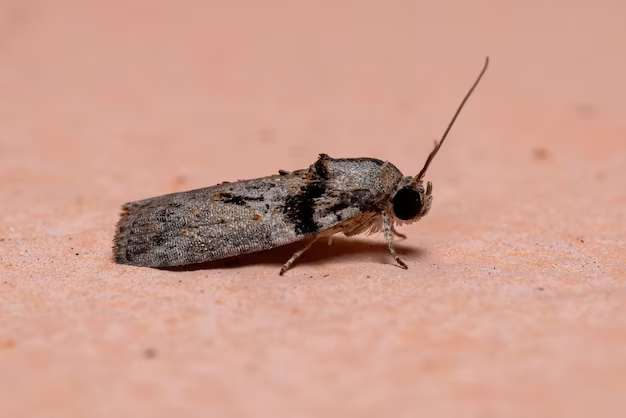Can Cockroaches Really Inhabit Your Refrigerator?
When you think of cockroaches, it's the scurrying in the shadows and their resilience that probably come to mind. They're known for their ability to survive in harsh environments, but does that include your refrigerator? You might be surprised to learn that cockroaches can actually find ways to live in this unexpected location. Let’s dive into the question of whether these pesky insects can inhabit one of the coolest spots in your home and what you can do about it.
🥶 How Cold Environments Affect Cockroaches
Cockroaches and Temperature Sensitivity
Cockroaches are ectotherms, meaning they rely on external temperatures to regulate their body heat. They thrive in warm environments but can adapt to varying temperatures. Despite popular belief, cold doesn't automatically kill cockroaches, but rather slows their activity and reproduction. Refrigerators, while not an ideal environment, might not always deter them as one might hope.
The Role of Refrigerators
The inside of a refrigerator maintains temperatures between 35°F and 38°F (around 1.6°C to 3.3°C). While these temperatures are lower than cockroaches prefer, they aren't necessarily lethal. Cockroaches can enter a dormant state, halting their growth and reproduction processes to survive temporarily. However, the cockroaches are more likely to thrive in the warmer areas around the refrigerator, like the motor or compressor.
🔍 Common Entry Points and Habitats
Entry Points
Cockroaches are adept at exploiting small openings. They can enter your refrigerator through:
- Gaps in seals or gaskets: The seals can degrade over time, providing entry.
- Drains or vents: These components can serve as unintentional pathways.
- Cracks and crevices: These insects are masters at sneaking through tiny spaces.
Common Habitats Inside and Around Fridges
Even if they don’t thrive, cockroaches can use refrigerators as temporary shelters:
- Motor compartments: The warmth attracts them during colder periods.
- Insulation materials: These can provide a cozy hiding place.
- Cabinets beneath the fridge: Undisturbed, these areas can harbor nests.
🚫 Preventing Cockroach Infestations
Keeping Cockroaches Out
Preventing cockroaches from making a home in your refrigerator starts with maintenance and cleanliness:
- Inspect gaskets and seals: Ensure that your refrigerator doors shut tightly.
- Seal entry points: Use caulk or weather stripping to close off potential paths.
- Clean regularly: Keep the fridge and surrounding areas free of crumbs and spills.
Environment Control
While keeping your refrigerator clean is crucial, addressing potential habitats around it is just as important:
- Reduce clutter: Less hiding space means fewer places for cockroaches to settle in.
- Fix leaks: Cockroaches thrive in moist environments, so fixing leaks can help deter them.
- Maintain a good hygiene regime: Regular cleaning, particularly in the kitchen, can greatly reduce cockroach attraction.
🧹 DIY Solutions and Professional Help
Home Remedies
There are a few home remedies to consider when dealing with cockroach prevention:
- Boric Acid: A natural repellent, sprinkling boric acid around your refrigerator can help.
- Diatomaceous Earth: Sprinkling this around your space can be an effective natural pesticide.
- Essential Oils: Oils like peppermint can deter cockroaches. Adding them to cleaning solutions can help keep these pests at bay.
When to Call in the Experts
Sometimes, dealing with a cockroach infestation requires more than DIY measures. If you notice signs that suggest a widespread problem, consider:
- Professional pest control: They can identify and treat infestations effectively.
- Regular inspections: These can help catch infestations early before they become severe.
🪳 Insight: Cockroach Behavior and Identification
Identifying an Infestation
Recognizing the signs of a cockroach problem is key to resolving it:
- Droppings: Small, black, and cylindrical, these are often found near their nests.
- Egg cases: Tan or brown, these indicate reproduction and potential spread.
- Odor: A musty smell often accompanies a significant infestation.
Understanding Their Behavior
Cockroaches are nocturnal and frequently scavenge for food at night. They can consume almost anything, so ensuring food is stored securely is essential. Their resilience is partly due to their ability to eat varied materials, including paper and glue, which is often found in kitchens and dining areas.
📝 Practical Summary Section
Here are some key tips and takeaways to keep cockroaches out of your refrigerator and kitchen:
- 🔑 Inspect seals and gaskets: Check and replace them if worn out to ensure a tight seal.
- 🧼 Clean thoroughly: Regularly clean the fridge and surrounding areas to eliminate food sources.
- 🛠️ Seal entry points: Use caulk or tape to close any visible cracks or gaps.
- 💧 Manage moisture: Fix any leaks and use dehumidifiers if necessary to control humidity.
- 🌿 Employ natural repellents: Utilize substances like boric acid and essential oils.
Strategically incorporating these habits can help keep cockroaches at bay, ensuring your refrigeration remains pest-free and your food safe.
🔗 The Bigger Picture: Kitchen Hygiene and Pest Management
Controlling cockroaches in the refrigerator is part of a broader kitchen hygiene strategy. By maintaining a clean and organized kitchen, you're making your home less inviting to these unwelcome guests. The reduction in food sources and hiding spots significantly diminishes the likelihood of an infestation.
Implementing a regular cleaning schedule, sealing potential entry points, and employing both natural and professional solutions can foster a healthier, safer, and more pleasant living environment. These efforts, while seemingly small, are significant steps in the bigger picture of effective home management and pest control.
Cockroaches may seem insidious, but with informed prevention strategies and vigilant maintenance, you can ensure they stay out of not just your refrigerator, but out of your home entirely.

